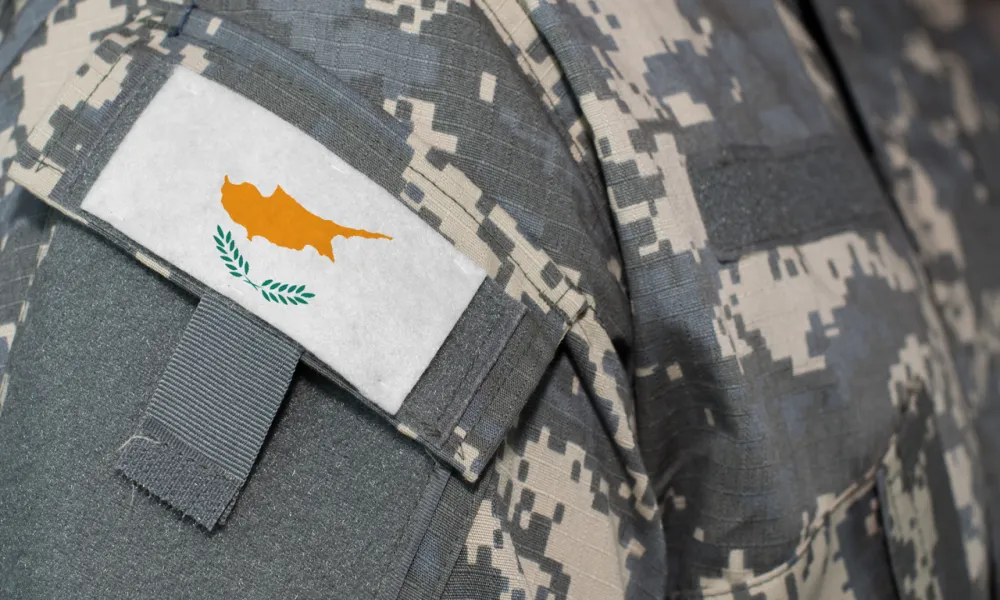Cyprus is significantly increasing its defence spending, with annual budgets exceeding €170 million since 2023, according to official data. The 2026 state budget, submitted to the House of Representatives last Thursday, allocates €176.8 million for the National Guard, with further increases planned for the following years.
A classified breakdown of the defence budget will be presented shortly to the Parliamentary Committee on Defence in a closed-door session. According to the budget document, defence expenditures are projected to rise to €180 million in 2027 and €175 million in 2028, with the possibility of further upward revisions.
A defence source told Politis that the Ministry of Defence is “proceeding steadily with the implementation of the armament programme developed in cooperation with the National Guard, raising the defence budget to its highest level in recent years, while remaining within the country’s economic capabilities.”
Investment in equipment and capabilities
The 2026 budget will support both ongoing and new procurement contracts aimed at qualitatively enhancing the Cyprus National Guard with modern platforms, equipment, and capabilities. These aim to maintain Cyprus as a reliable deterrent and defensive force.
The Ministry of Defence is sourcing equipment from Israel, European nations, and soon from the United States. In early 2026, Cyprus is expected to receive the remaining three H145M light attack helicopters from Airbus Helicopters, completing the order of six signed in June 2022, valued at approximately €140 million.
The H145M, already in use by the armed forces of the US, Germany, Serbia, and others, will replace the ageing fleet of Russian Mi-35P attack helicopters, which were sold to Serbia. The sale came after Cyprus was unable to maintain the aircraft due to EU-imposed sanctions on Russia.
Long-term defence planning
The Ministry of Defence highlighted several key points regarding its procurement strategy:
-
A long-term and medium-term procurement plan has been drafted to ensure efficient and prudent allocation of resources.
-
Existing weapons systems will be used to their full potential, supplemented by advanced technologies that enhance deterrence.
-
Technology is being maximised to improve operational capabilities while reducing manpower needs.
-
Operational upgrades are tied to infrastructure improvements, including ongoing upgrades to the Evangelos Florakis Naval Base in Mari and Andreas Papandreou Air Base in Paphos.
Defence diplomacy as a strategic pillar
Beyond armaments, Cyprus is also bolstering its national security through defence diplomacy, with coordinated efforts from the Ministries of Defence and Foreign Affairs. The goal is to deepen ties with powerful allies within the EU and the United States, and to consolidate regional partnerships to counter growing threats, particularly from Turkey.
These efforts have expanded Cyprus’s diplomatic influence and strengthened its international bargaining power, particularly in the Eastern Mediterranean. The US has deepened its defence presence in the region through enhanced cooperation with both Cyprus and Greece, driven partly by mutual strategic and energy interests.
According to the Defence Ministry, such partnerships are crucial for Cyprus, especially in addressing the ongoing illegal actions by Turkey. These collaborations also improve the operational readiness of the National Guard, which now regularly participates in multinational exercises.
Three pillars of strategic cooperation
1. Regional Defence Partnerships
Cyprus aims to be a key player in regional peace and stability. Bilateral defence and security ties have been established with EU states like Austria, France, Germany, Italy, the Netherlands, Romania, and others, as well as regional players such as Israel, Egypt, UAE, Saudi Arabia, Jordan, and Lebanon. Additionally, partnerships with the UK, India, Armenia, and Serbia have been developed.
Notably, Cyprus sold its 11 Mi-35P attack helicopters to Serbia through a government-to-government agreement.
2. Enhanced US-Cyprus Relations
Military cooperation with the US has significantly strengthened in recent years, with Cyprus already acquiring non-lethal systems such as night vision devices and robotic IED disposal units. The two nations conduct joint annual exercises and training, and National Guard personnel study in US military institutions under the IMET programme.
A major milestone was Cyprus’s inclusion in the State Partnership Program (SPP), aligning it with the New Jersey National Guard.
Former Defence Minister Charalambos Petrides became the first Cypriot Defence Minister to visit the Pentagon, holding talks with senior US defence officials.
3. Common European Defence Policy
Cyprus maintains a military delegation in its Permanent Representation to the EU, contributing to key decision-making within the EU Military Committee. Seven Cypriot officers also serve in roles across European institutions, including the EUMS, EDA, ESDC, and MPCC.
Cyprus participates in two EU CSDP operations and nine PESCO projects. In line with its strategic outreach, Cyprus also engages in Search and Rescue (SAR) operations, with its Joint Rescue Coordination Center (JRCC) now recognised as one of the most advanced in the Eastern Mediterranean.
